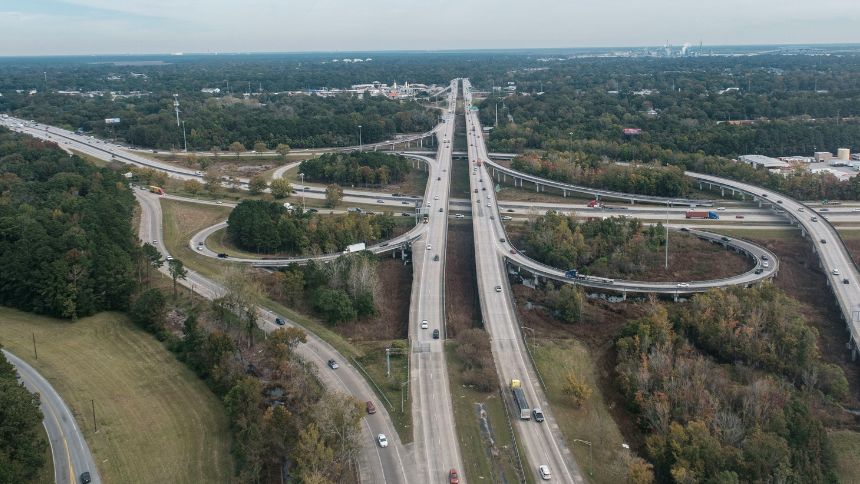
TNGO announces inaugural projects receiving funding
The seven awardees include three from the University of Tennessee.
The Tennessee Department of Economic and Community Development (TNECD) has awarded $2.9 million to seven collaborative teams through the Transportation Network Growth Opportunity (TNGO) initiative.
TNGO, which received an initial $5 million in funding through the Tennessee General Assembly during the 2023 legislative session, serves as a tool to diversify the state’s economy by leveraging both public and private sector assets to attract mobility R&D investment to Tennessee.
“For decades, Tennessee has been leading the nation with our strong manufacturing workforce. In partnership with the General Assembly, we’ve made strategic investments to further diversify our business environment and attract research and development companies that will create more high-quality jobs,” said Governor Bill Lee. “Our state is fortunate to have a vast network of educational institutions that are training the next generation of workers, and we want companies to know that our pro-business climate can support the entire mobility supply chain.”
An additional $2.5 million in funding was approved by the legislature in the spring of this year and is part of the state’s efforts to make Tennessee the #1 destination in the Southeast for automotive and mobility R&D investment.
“Launching the TNGO initiative was the beginning of a broader conversation around mobility to further identify Tennessee’s strengths in this sector and connect our already existing assets with companies looking to engineer and design the next great product in the state,” said TNECD Commissioner Stuart C. McWhorter. “I am proud to take part in announcing nearly $3 million in funding today to support these seven projects and look forward to seeing their success.”
The selected projects, including three of the seven that involved the University of Tennessee (UT), exemplify how Tennessee can lead in industry-driven and collaborative mobility R&D and will serve as catalysts to attract additional industry-related R&D investment to the state.
The grant recipients include students and faculty from Tennessee’s leading research institutions who will partner with industry, economic developers and community leaders to bring their plans to fruition.
- UT Space Institute (Tullahoma) – $100,000 for its “Safety Limit Prediction of Degraded Lithium-Ion Batteries for the Automotive Industry.” The outcomes of the project will provide useful insights into battery and thermal management systems and mitigate electric vehicle battery safety accidents.
- Williamson County Emergency Management Agency (Franklin) – $450,000 for its project titled “School Bus Route Artificial Intelligence (AI) Optimization and Safety Initiative.” The project includes the development of an AI application to update parents, students and district staff on real-time bus route management solutions to increase efficiencies and manage options based on driver and vehicle availability.
- UT at Chattanooga (Chattanooga) – $490,000 for a project titled “Advancing High Powered Dynamic Wireless Charging for Medium-and Heavy-Duty Vehicles.” It involves a 25-foot demonstration project designed to showcase Electrovia’s system, efficiently charging medium-and heavy-duty vehicles in dynamic and stop-and-go scenarios. The project will debut a dedicated Vehicle-to-Everything (V2X) system enabling seamless wireless vehicle charging.
- Vanderbilt University (Clarksville) – $350,000 for its “Mobile Lidar Solution to Enhance Traffic Safety and Efficiency Across Tennessee.” By leveraging lidar sensors, the project addresses significant traffic-related fatalities and injuries through state-of-the-art sensing and data analysis and avoids privacy concerns that arise when using camera-based approaches.
- Middle West Tennessee Clean Fuels Coalition (Nashville) – $500,000 for its project “Demonstrating Real World AI through Traffic Signal Control.” The project aims to demonstrate a cutting-edge AI-based signal control technology, DASiC, which learns and predicts traffic dynamics and optimally controls the signals using reinforcement learning to improve mobility efficiency up to 20% in selected areas.
- UT, Knoxville (Knoxville) – $500,000 for the “Building Platform for Development of Automotive Cybersecurity Testing.” The project includes the development of an advanced research infrastructure for rigorous testing in controlled environments to enhance the security and reliability of automotive systems in response to increasing cyber threats.
- University of Memphis (both Memphis and Chattanooga) – $500,000 for a project titled “Designing Multimodal Transit System for Blue Oval City and Volkswagen.” The project creates a user interface that allows users to have real-time data on the best ways to get to access public transportation to get to work. The application will also integrate public transit options with parking solutions for commuters from more rural areas.
TNECD launched the TNGO discovery phase earlier this year to gain a broader understanding of how the mobility shift in automotive and transportation is impacting companies, communities, economic development and education.
The feedback received from the initial phase resulted in TNECD announcing a TNGO funding phase to collaborate and develop projects that could address those statewide challenges and opportunities uncovered during the discovery.
Like what you've read?
Forward to a friend!

